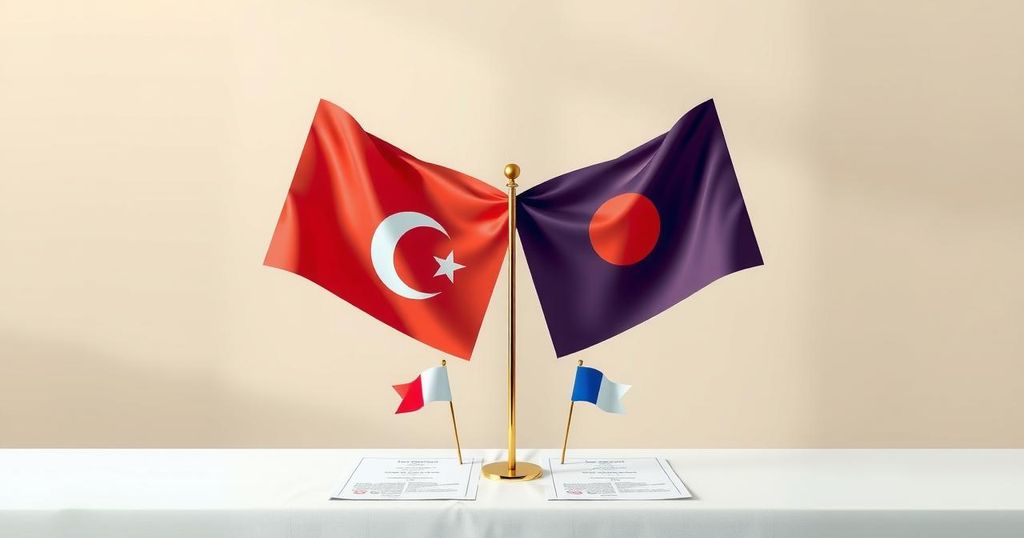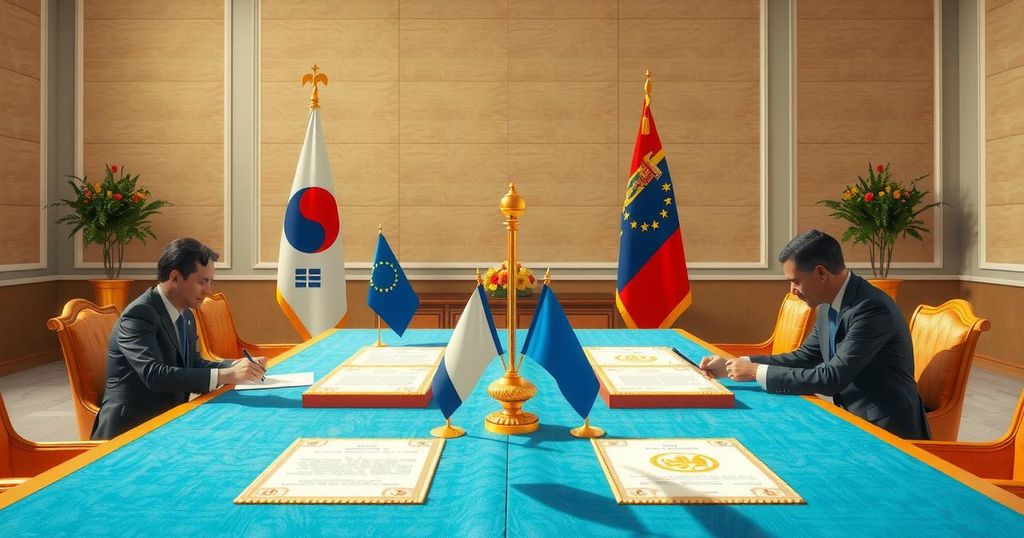Tigray Power Struggle Threatens to Respark Ethiopia-Eritrea Conflict
The TPLF’s internal rift heightens the risk of conflict with Eritrea, as a faction seizes control in Tigray. This struggle threatens regional stability, with Eritrean troops lingering in contested areas. Warnings from experts indicate that violence could escalate, involving neighboring nations, while humanitarian needs persist in Ethiopia. Meanwhile, international dynamics and environmental disasters illustrate broader challenges facing Africa.
The power struggle within the Tigray People’s Liberation Front (TPLF) in Ethiopia poses a serious risk of escalating into a conflict involving neighboring Eritrea. Recent escalations occurred when a dissident faction overtook a major radio station and captured the city of Adigrat, resulting in accusations from TPLF interim leader Getachew Reda against his rivals of collusion with Eritrea to instigate a civil war.
This situation is particularly tense as Eritrean President Isaias Afwerki is determined to eliminate the TPLF, with whom he once allied against Ethiopia’s Derg regime in the 1990s. Despite a peace accord signed in 2022 to end a devastating civil war, Eritrean troops continue to occupy contested border areas, disregarding international calls for withdrawal.
Complicating matters further, some factions within the TPLF are dissatisfied with the peace agreement, viewing it as an infringement on their authority and ensuring their disarmament while other leaders secure power. Tigray Defense Forces (TDF), which recently threw its support behind Debretsion Gebremichael, might seek to maintain control over lucrative resources in the region, including illegal gold mining.
The ramifications of renewed conflict could extend beyond Ethiopia, potentially drawing in Sudan, which had previously supported the TPLF. This destabilization might have dire consequences, including a potential humanitarian crisis reminiscent of the previous civil war that resulted in 600,000 deaths and mass displacements.
In a broader context, Ethiopia’s recent diplomatic maneuvers, including negotiations with Turkey for maritime access, further exacerbate tensions with Eritrea. Experts from Foreign Policy caution that conflict is imminent based on the rapid military mobilization witnessed across the region.
Other notable developments include the withdrawal of M23 rebels from peace discussions in Angola following European Union sanctions, the expulsion of South Africa’s ambassador by the U.S. following his comments on Donald Trump, and a significant environmental disaster in Zambia due to a spill from a Chinese mine, affecting millions reliant on the Kafue River for water and sustenance.
Lastly, Starlink’s rapid rise in Nigeria’s broadband market is indicative of the shifting landscape in telecommunications across Africa, as the company emerges as a significant provider despite criticisms of operational ethics and local impacts.
The potential for renewed hostilities between Tigray and Eritrea remains pressing amidst internal TPLF disputes. The complexities of historical alliances, current dissatisfaction with peace agreements, and external pressures might culminate in a broader regional conflict. Additionally, critical humanitarian and environmental issues within Africa underscore the continent’s turbulent political landscape, demanding urgent international attention and intervention.
Original Source: foreignpolicy.com




Post Comment